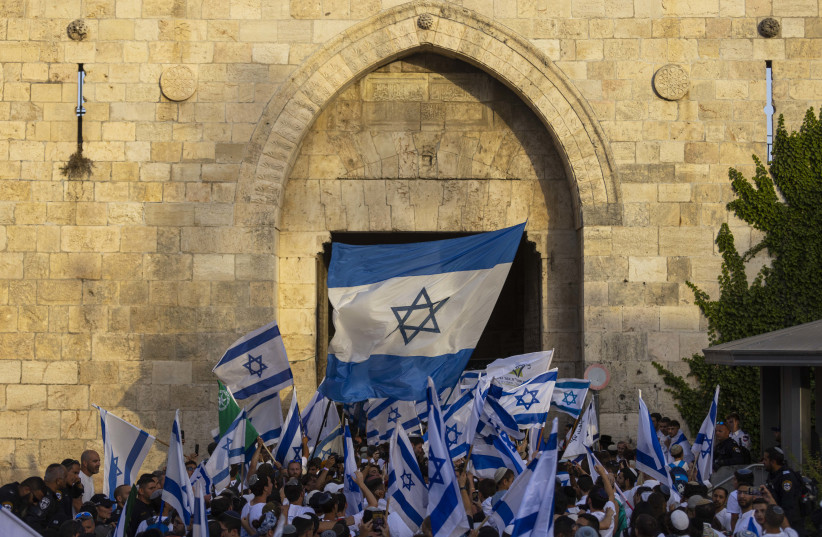I cannot emphasize how much I believe Zionism to be one of the most charitable, ethical and corrective movements of the 20th century. The return of the Jewish people, not just to our physical homeland, but also to self-governance, agency and self-reliance, has corrected an atrocity compounded over 2,000 years.
What I am most prideful about of all is the fact that this movement succeeded under the most precarious and challenging of circumstances while, by and large, maintaining the utmost moral clarity and an admirable adherence to the concept that as an oppressed minority, democratic institutions and values are the best guarantors of long-term safety and success for every citizen of a given country.
Like every nation, Israel, too, made mistakes and erred along the way. Despite this, our values and democratic vision have led us to truly be one of the most free and thriving states on earth. The pride of my life was serving in the IDF, no doubt the most ethical military in the history of the world that manages the impossible, aggressive military posturing held to the highest of moral standings.
Israel has its detractors who highlight or distort both real and imaginary misdeeds. Sometimes these are small student groups and sometimes global institutions; sometimes these are well-intentioned and sometimes these are motivated by the vilest of antisemitism.
One notorious example of this is United Nations General Assembly Resolution 3379, which saw Zionism declared as racism, in 1975. This resolution was a modern form of post-Holocaust antisemitism, denying the right of self-determination to the Jewish people in the very center of global statehood.

Zionism is not racism, but it can be corrupted
Zionism is not racism. But tragically, like any nationalist movement, it can be corrupted. While Israel has always had extremist Jews both in and out of government, never have their views and ideologies enjoyed such a broad platform as they have since the end of December 2022, when this government took office.
The halls of the Israeli government, which famously banned racist parties from its ranks in the 1990s, today rely on extremists and racists for its very survival. The result is weekly diplomatic embarrassments for the state and a significant alienation of some of our minority groups, as well as a tangible blow to our values and national direction.
In the beginning, extremists within this government were transparent about their desire to wipe out Palestinian villages and their belief that members of Arab political parties in the Knesset should be spoken to like animals. After months of international pressure, they have learned to keep their ideology to themselves.
This, however, has not prevented attempts to pass increasingly racially and ethnically motivated legislation that promotes institutionalized Jewish supremacy and in some cases, the outright suppression of minority opinion, symbols and identity.
THESE LEGISLATIVE efforts and rhetorical remarks by members of the government advance in parallel to action on the ground. From the Huwara race riots against Palestinians following a brutal terror attack that left two Israelis dead, to more recent incidents of racism at the Jerusalem Flag March, Israeli extremism is on the rise.
Just this past weekend, we saw an incident where a scuffle between Israelis and Palestinians left four Palestinians wounded from gunfire in the West Bank. Many initial reports tried to claim the Jews fired in self-defense, but images of burning Palestinian cars leave little room for the imagination as to what really transpired.
None of this detracts from the daily security threats Israel faces. However, using those attacks as justification for religious preferences on housing or the attacks by Israelis on Palestinians does not work either. Israel is facing an extremism problem. While not new, the problem has found its way into government policy which, if left unchecked, could institutionalize racism within Zionism in ways that will be difficult to divorce down the road.
Tragically, every day that extremism is provided a platform in government and a blind eye is turned to racism and vigilante violence in the streets, the Zionist cause itself is eroded more than when a bus explodes in downtown Jerusalem. I am not calling for the end of any specific government coalition; in fact, the largest party in this coalition has an admirable history of countering extremism and supporting those in need.
I am simply calling on any ruling government to set clear guidelines for the acceptable behavior of its partners and to take extremism and violence seriously when they are present on our streets. Physical security threats can be addressed, but remedying the destruction of our values will prove far more challenging.
Zionism should not be about preferential housing terms for certain ethnic groups or turning a blind eye to pogroms. Zionism should be about addressing concrete security challenges, promoting Jewish return to our ancestral homeland, celebrating tolerance, incorporating minorities into national and community service, and supporting every citizen and resident in the Jewish and democratic state of Israel, regardless of their religion or ethnicity.
The writer is a geopolitical consultant, mostly working in the Middle East-North Africa region, and periodically writes about Israeli issues.
